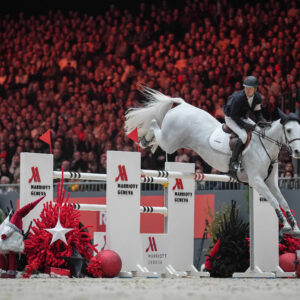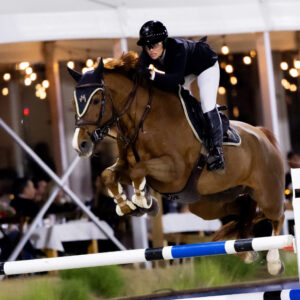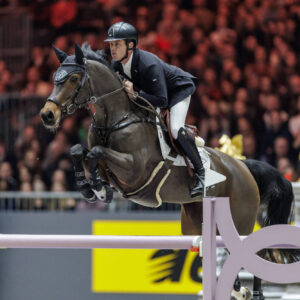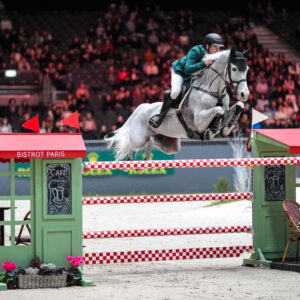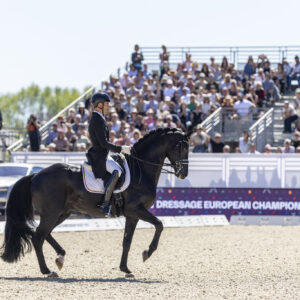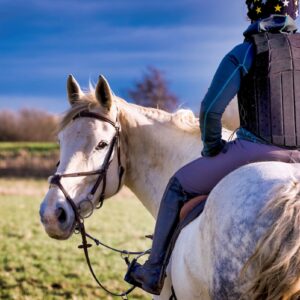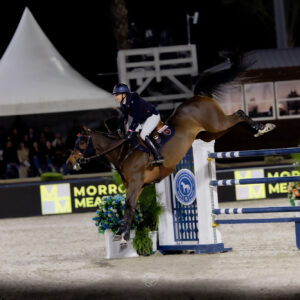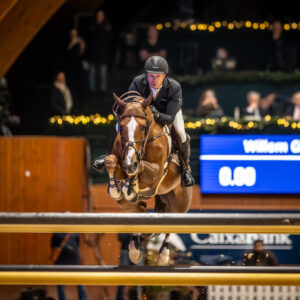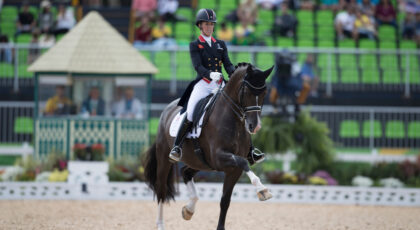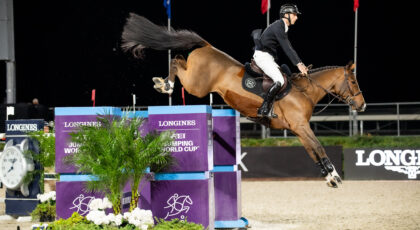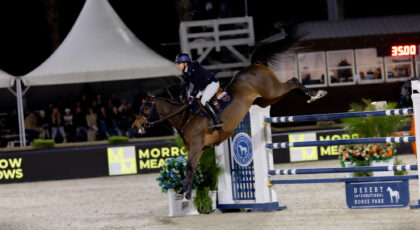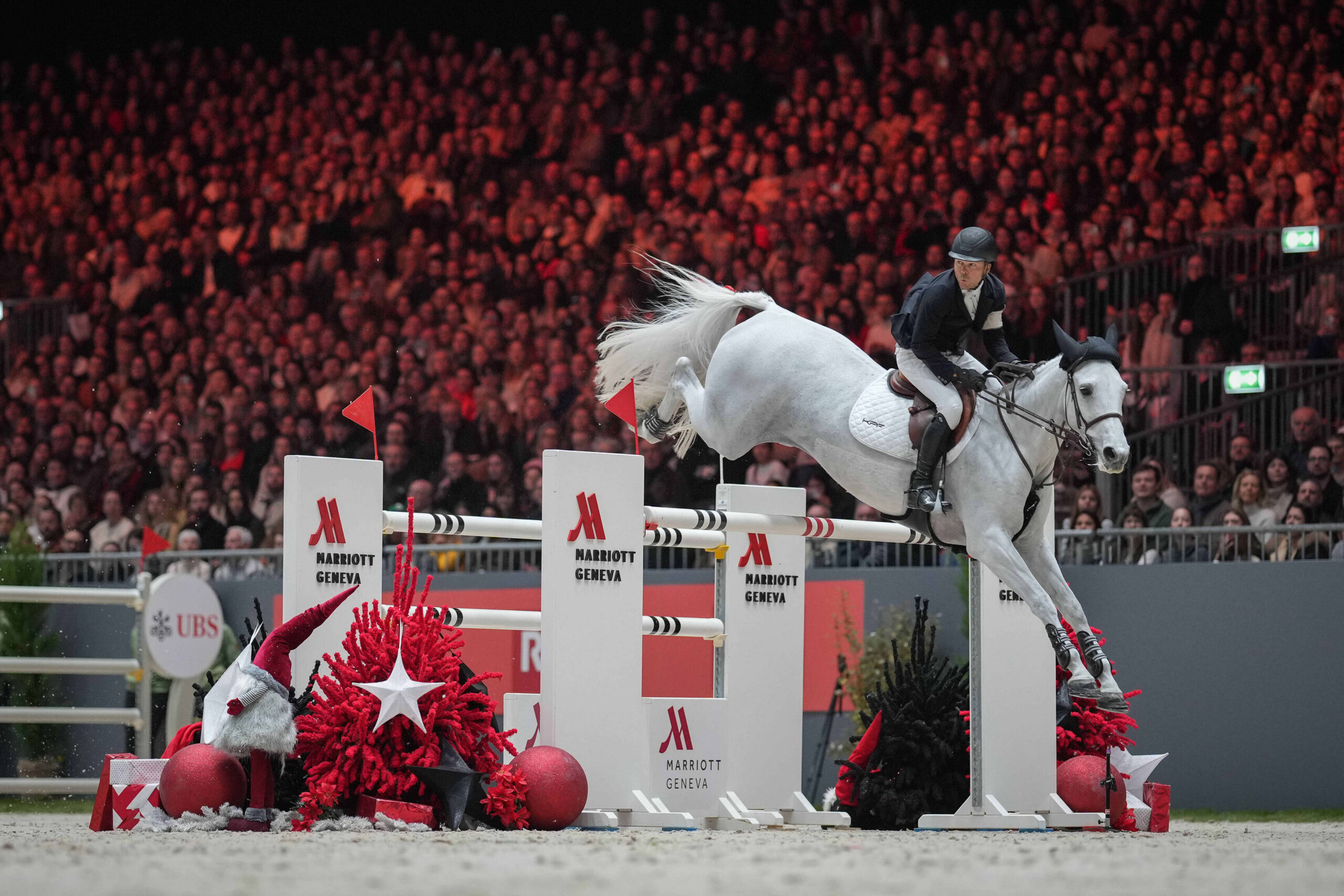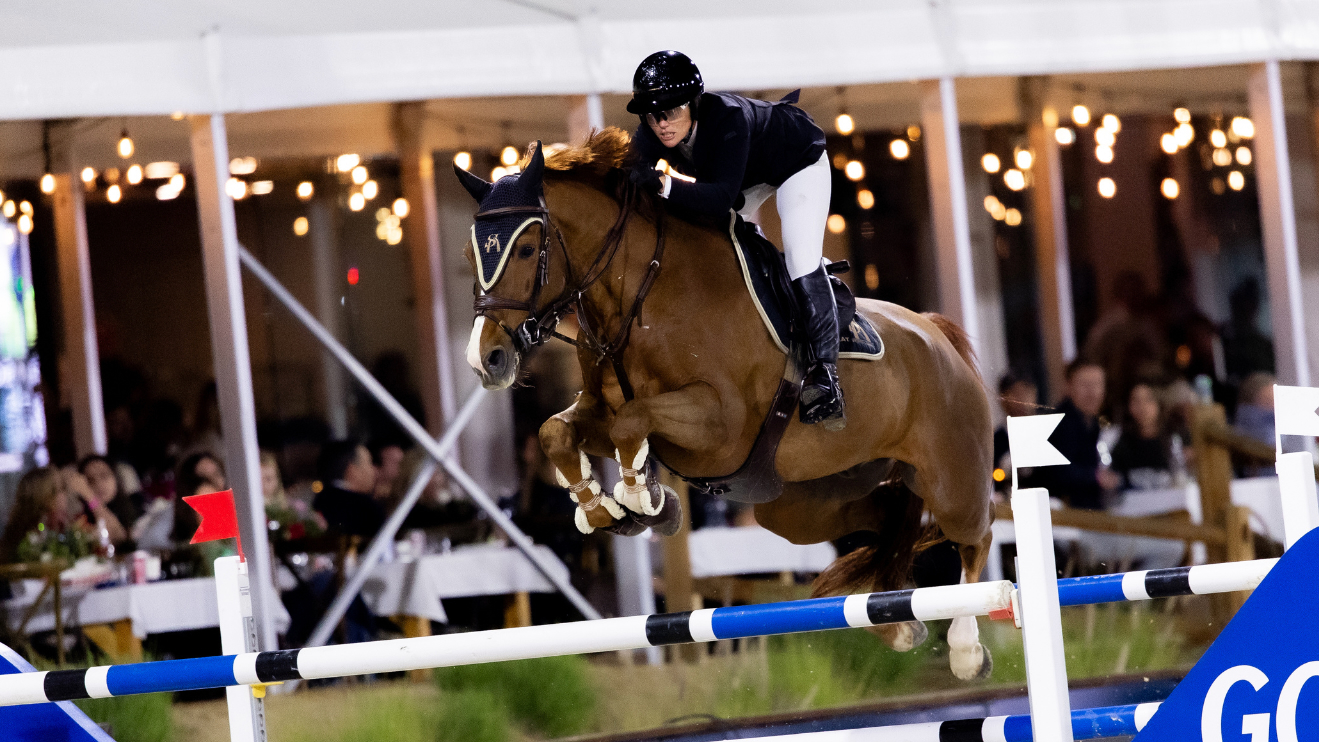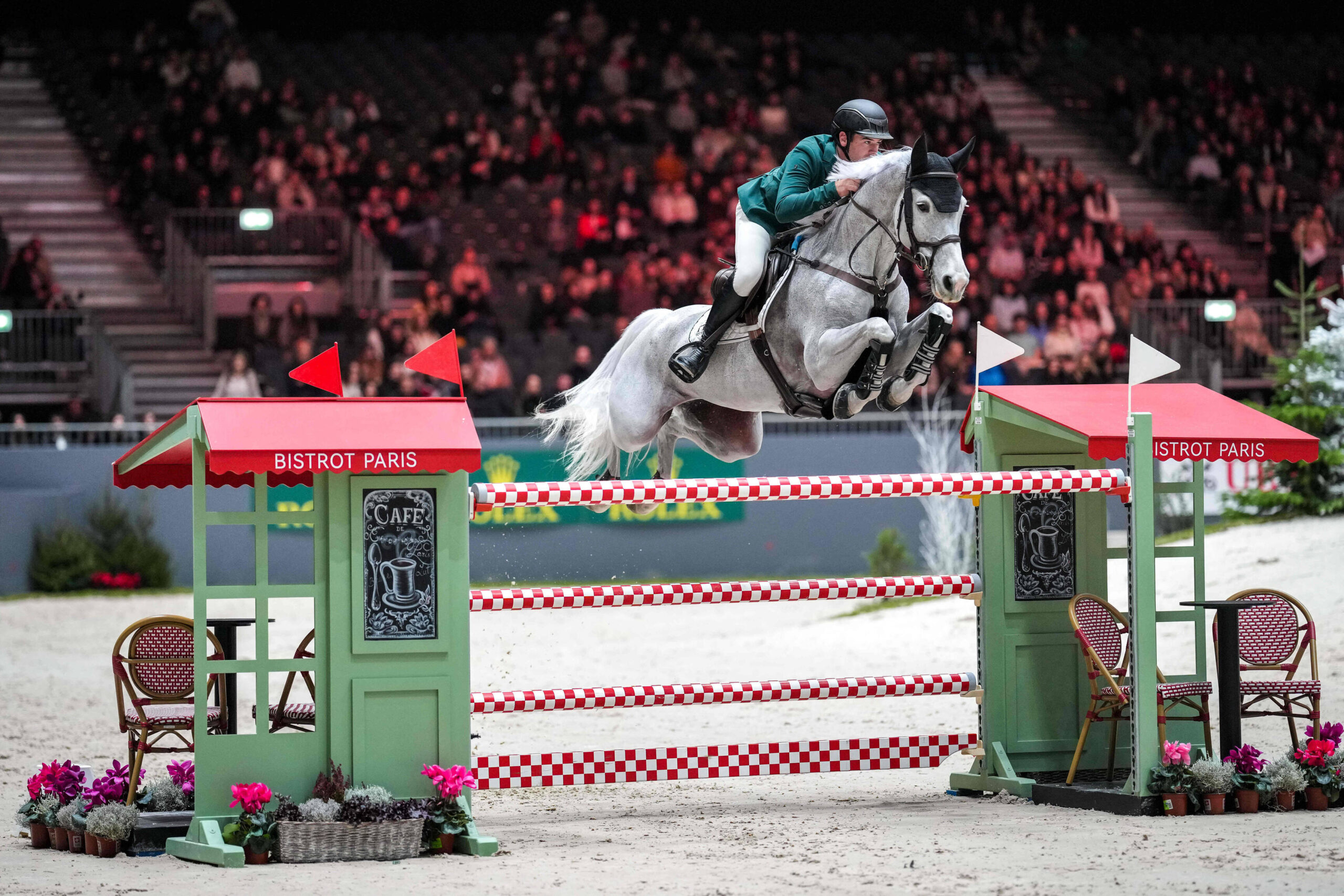My first boss was a middle-aged man from Munich.
With the charred end of a cigarette hanging from his mouth, he’d regale anyone willing to listen with the story of how he was dropped on the shores of the United States by his wealthy father 30 years earlier. He wheezed between words as he coughed out tales of his glory days, jumping horses in prestigious Grand Prixs across Europe. We didn’t see many photographs but his animated storytelling painted pictures in our heads.
The one before us told a different tale. A washed-up fish that gasped for air, his mouth salted and dry. The cigarette sat wedged in the split corner like a hook. He had white hair, blue eyes, and what I imagine was a fair complexion beneath the sunburn that left his face so broiled and peeling that it gave the illusion of scales.
Sometimes he reasoned that he ended up in the U.S. because he got kicked out of German university, and others because his father simply didn’t approve of him pursuing a show jumping career.
To this day, I can’t entirely decipher fact from fiction. But I gathered he was as troubled then as he was the day we met.
It was 2011. I was 16, and his small 15-horse stable in Massachusetts was my first introduction into the horse industry. I’d been taking weekly lessons for a few years but I was unusually small for my age. It wasn’t long until an aggressive case of Napoleon syndrome left me tired of trot-around-ponies. My only request was to ride the big horses, but few would offer me a leg-up more than 14 hands off the ground.
I ended up with the German because he was different; something I later understood to mean of questionable sanity.
That first brisk morning in his barn I was struck by the image of a Bengal tiger striding across the buttons of a Hawaiian style shirt, strapped to a man coated head to toe in a layer of arena dust. With a limp he lumbered up from a rain-wrought picnic table to shake my hand. He said his name was Ed*, and I commented under my breath that he looked like he had been living under a bridge. We laughed but I knew if a barber saw him coming they would cry.
Ed didn’t live under a bridge, as it turned out. He lived in a stable, and for the next three years so did I.
When I took the job as his working student I was too small to lift a bale of hay, so my labor wasn’t always to the greatest effect. But he provided a revolving carousel of mounts. My favorite was a lanky horse called Fly, who with his craning neck and long gangly legs was more giraffe than horse. Fly might have looked more natural perusing the savannah for acacia leaves but he had four hooves and two ears when it counted.
Under Ed’s tutelage, I grew accustomed to the taste of winning in the show ring, but so did I equally come to learn all flavors of New England soils. I always climbed back onto my horse after I fell but was never really able to get the stains out of my breeches. On one of the tack room walls hung a “Fall off Board” that was rife with tally marks beside my name. In hindsight, I should have considered taking a look at his safety standards. The people who lived next door certainly expressed their concern with frequent calls into the police for the German-accented screams echoing through their neighborhood. Perhaps they heard me on occasion shouting back.
Ed was never apprehended by police but his go-to horse dealer was. The dealer rivaled Ed in both age and dishevelment. Cataracts left his stare cloudy and vacant, making his possession of a driver’s license the only thing more unsettling than his gaze. He lowered the trailer ramp and I couldn’t be sure if the creaking was from his joints or the rusted coils.
“Hmph,” he gruffed, handing me a beast with an overgrown coat, floppy mane, and mud-caked tail.
We were expecting a 1.20m horse but I was tempted to believe he pulled this one from the trenches of WWI. As Ed’s standard sacrificial lamb I was promptly tossed into the saddle, but I didn’t stay long. The fence stopped my mount. I shot clear through it.
When the dealer returned to take the horse back where it came from, he squinted at the animal for a long while.
“Hhm,” he cocked his head, one bushy eyebrow raised, “It’s the bronc horse. Was s’posed to go to the rodeo.”
Our barn manager grumbled over having to repair the whole fence alone. I would have offered to help, but I was too busy trying to preserve whatever modesty I had left. My blood-soaked breeches lay across the room as the entire stable took turns trying to tend to the gash a nail tore through my thigh. My shirt was woven with splinters and tossed somewhere atop a dusty piano. That afternoon, after an honorable 6.0 second career, I formally retired from being a cowgirl.
Mixing up the horses was no criminal offense, but that blind eye is what eventually got the dealer arrested. Evidently, just because you can’t see the conditions of your farm doesn’t mean the court won’t. His entire property was seized on counts of animal cruelty. Reports cited saturated stalls and knee deep mud paddocks. I wish someone (perhaps me) had reported suspicions sooner. We knew he was odd but always assumed the horses he kept were cared for.
At 19, I decided to take matters into my own hands and buy a horse—a plain, bright orange mare with hardly a dozen rides under saddle. I wanted to call her Jane Air, a play on words of my favorite Charlotte Brönte novel Jane Eyre, but I learned she was already named Baylee. I was disappointed I could no longer give a nod to classic literature while saluting the judge, but I settled for affectionately calling her Baylee Jane.
My new training project was exciting, but she found great stress in the chaotic nature of my boss. I realized I tired of it too. When I told him I was leaving I watched his face swell up like a ripe tomato. He cursed me in the most creative ways. Expletives flew from the spaces of his missing teeth as he chased me around the arena. Yet our story ended happily, amends have since been made.
In search of new opportunity, I phoned one of my only contacts. A man in his early 80s, reminiscent of an Animal Crossing character, who spent his time making cross country road trips to visit show venues. He relocated me to a stable in North Carolina, helmed by a feather-light Canadian rider. I was pleasantly surprised at how different he was from six foot tall burly German who would shout at me to be stronger when the ride went awry. We broke American-French bread at Panera and laughed in the lulls of awkward, first-time conversation.
“Be careful,” his assistant warned me. “He’s fun and nice at lunch. We can laugh and make jokes. But in the stable he’s all business.”
The assistant was a sensible girl. She had long brown hair to her waist with a cowlick she always complained about but I never noticed. Plain, in the admired Jane Austen sort of way.
“He wears two different hats,” she said.
I’ve met people who wear “two hats” before. Teachers you bump into at grocery stores who insist you now call them Ann instead of Mrs. Witz, businessmen at the golf course, moms when you’re of drinking age. I now know to expect an entirely split personality if one of those hats is a riding helmet.
His face was just as he was—sharp, angular, and abrasive. It looked as though the sculptor had carved away at the slab of stone but hadn’t bothered to sand the edges. His eyes were an opaque blue, but most amusing about them was rather their shape, upturned and almond cut. Because of this, despite his anger fueled outbursts, his eyes always smiled. Without permission. How ironic is it to have your very own eyes defy you?
He was the Stable Sergeant and I was a foot soldier, but my yeehaw education made for a difficult bootcamp.
It was lunging, a seemingly staple task, which sent me spiraling into hyperventilation.
“Please, figure it out you poor insufferable girl,” pleaded the eyes of the grey gelding who circled me.
My boss sat atop his horse shouting, tongue fluid as the tears streaming down my cheek, for every motion of mine was wrong. A talented show jumper, but he still couldn’t jump as high as my blood pressure did in those moments. He could fit more insults into one sentence than I could in an entire argument. This was his Mr. Hyde but it was a gift and I admired him for it. For a long time it was my claim to fame too; the sharp tongue and quick remarks. I was good but he was better.
The issue was I didn’t know him but he knew me. He knew all of the chinks in my armor because he had seen a hundred of me. Sweaty. Dirty. Doe eyed. Inexperienced. Not especially remarkable. My clothes didn’t fit right. I was still too young to drink.
“I don’t bother to remember their names anymore,” said the lesson trainer, “they come and go so quickly.”
As I clutched the taut lunge line and squinted at kicked up sand, struggling to catch my breath, I realized it was going to take many more days like this to get to where I wanted to.
I tried to hide with my horse in the wash stall but he found me and assured me he was only hard on people because he believed in them.
“I know, I know,” I laughed through my sobs.
Surely, he felt sorry for me, because once upon a time he was where I was standing. Yet not sorry enough to let up, because as they say, “diamonds form under pressure.”
Eventually, they all learned my name and mental breakdowns happened less and less frequently. The days got longer, my skin grew thicker, and hay bales got lighter as I got stronger.
Diamonds form under pressure but they also take time. For me, the greater of those hours still need to be put in. I thank the bosses who made me laugh and the ones who made me cry. My greatest appreciation though I save for the horses (in the form of peppermint-lined pockets) for making every bit of it worth it.
*Names have been changed to protect the privacy of individuals.
About the Author
Marina Callahan is an equestrian and a senior Journalism student with the University of Massachusetts Amherst.


 March 8, 2019
March 8, 2019 







